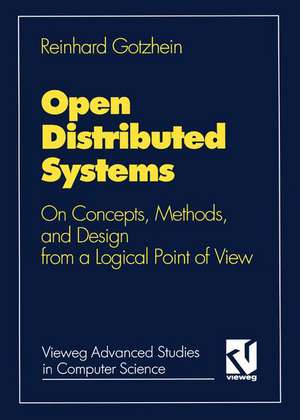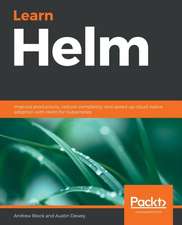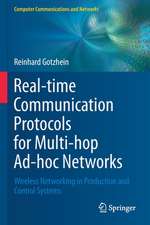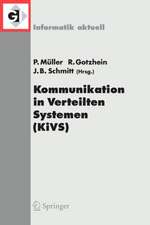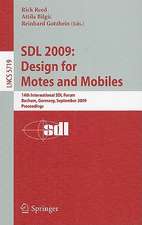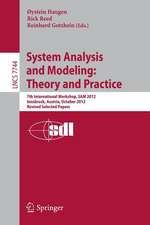Open Distributed Systems: On Concepts, Methods, and Design from a Logical Point of View: Vieweg Advanced Studies in Computer Science
Autor Reinhard Gotzheinde Limba Germană Paperback – 1993
Preț: 356.73 lei
Preț vechi: 445.91 lei
-20% Nou
Puncte Express: 535
Preț estimativ în valută:
68.26€ • 72.99$ • 56.91£
68.26€ • 72.99$ • 56.91£
Carte tipărită la comandă
Livrare economică 17 aprilie-01 mai
Preluare comenzi: 021 569.72.76
Specificații
ISBN-13: 9783528053581
ISBN-10: 3528053585
Pagini: 252
Ilustrații: XVII, 230 S. 6 Abb.
Dimensiuni: 148 x 210 x 13 mm
Greutate: 0.3 kg
Ediția:1993
Editura: Vieweg+Teubner Verlag
Colecția Vieweg+Teubner Verlag
Seria Vieweg Advanced Studies in Computer Science
Locul publicării:Wiesbaden, Germany
ISBN-10: 3528053585
Pagini: 252
Ilustrații: XVII, 230 S. 6 Abb.
Dimensiuni: 148 x 210 x 13 mm
Greutate: 0.3 kg
Ediția:1993
Editura: Vieweg+Teubner Verlag
Colecția Vieweg+Teubner Verlag
Seria Vieweg Advanced Studies in Computer Science
Locul publicării:Wiesbaden, Germany
Public țintă
ResearchCuprins
0 Introduction.- 0.1 Key topics of open distributed systems design.- 0.2 The role of standards.- 0.3 The need for formal descriptions.- 0.4 Distributed systems from the point of view of DAI.- 1 Formal methods in the system design process.- 1.1 A model for the system design process.- 1.2 Requirements for formal description techniques.- 1.3 Synthesis and analysis activities.- 2 Requirement specification of open distributed systems.- 2.1 Basic architectural concepts.- 2.2 System architectures.- 2.3 Refinement and abstraction.- 2.4 The Basic Reference Model of Open Systems Interconnection.- 2.5 Basic concepts of formal description techniques.- 2.6 Some remarks.- 3 The design of a temporal logic for open distributed systems.- 3.1 Some requirements on expressiveness.- 3.2 A survey of temporal logics.- 3.3 A modular temporal logic for open distributed systems.- 4 The interaction point concept.- 4.1 The role of interaction points.- 4.2 A list of possible interaction point properties.- 4.3 Formal specification of interaction point properties.- 4.4 Formal reasoning about interaction points.- 4.5 Interaction point representations in operational FDTs.- 4.6 Conformance between abstraction levels via the interaction point concept.- 5 Communication services.- 5.1 The service concept.- 5.2 Design methodology.- 5.3 Example “modified InRes service”.- 5.4 Conclusion.- 6 An epistemic logic for open distributed systems.- 6.1 The role of knowledge.- 6.2 Notions of knowledge.- 6.3 A modular epistemic logic for open distributed systems.- 7 Applying temporal epistemic logics to open distributed systems.- 7.1 Example “mutual exclusion”.- 7.2 Example “drink server”.- 8 Conclusion.- References.- A.1 Theorems and valid formulas.- A.2 Ordering properties for the service provider.- A.3Abbreviations.- A.4 Notation.
